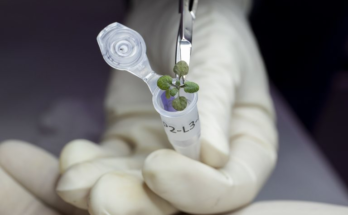
We don’t know how long protection from the COVID-19 vaccines will last, which has led to speculation that we might all need to get booster shots—perhaps yearly, as with flu shots—to stay protected. But according to data presented at a recent CDC meeting, people who finished their vaccinations six months ago are still well protected, and there’s no sign yet that boosters will be needed.
That doesn’t mean boosters won’t be needed eventually, just that it’s not time yet. The Centers for Disease Control and Prevention’s Advisory Committee on Immunization Practices discussed the available data in a meeting Wednesday, which you can see in presentation slides here. A workgroup studying the question proposed that boosters only be recommended after one of the following conditions were met:
- If evidence shows that vaccines are becoming less effective, as measured by more people getting COVID despite being vaccinated. This has not happened yet.
- If an “escape variant” has been discovered, that is, a variant of the COVID virus that can evade vaccine protection. This has not happened, either.
The panel’s members seemed to agree with these criteria, although the matter was only discussed as food for thought and not voted on.
It’s possible that boosters may eventually be recommended for certain populations even if they aren’t recommended for everybody. Research is still ongoing on whether people with weakened immune systems may benefit from them, and whether the elderly people who got some of the earliest doses of the vaccine may see their protection fade before the rest of us do.
One panel member noted that he has had patients requesting booster doses, based on media they have read, even though boosters don’t currently exist and have not been officially recommended.
What we know so far
We still don’t have a test that can tell for certain whether a person is protected against COVID, but there is evidence that one type of blood test, for neutralizing antibody titers, is associated with a reduced likelihood of contracting the illness. (Neutralizing antibodies are one way our body can fight off viruses, but they aren’t the only way.)
Several studies have shown that these antibodies remain high enough to suggest protection for at least eight months after COVID infection, and at least six months after vaccination. We don’t have data much further out than that, since the vaccine hasn’t been available very long. One of the biggest studies, called HEROES-RECOVER, keeps track of healthcare workers and other essential workers who began to get the vaccine after its authorization in December 2020. This is the same study that recently found the Pfizer and Moderna vaccines are 91% effective in real-world conditions.
More data will come along. The HEROES-RECOVER workers are still being followed, and the vaccine manufacturers are also following the people who participated in their clinical trials. Further studies on vaccine effectiveness and on immune responses to variants are still going on. So we may find out eventually that we do need boosters, but for now they are neither available nor needed.



